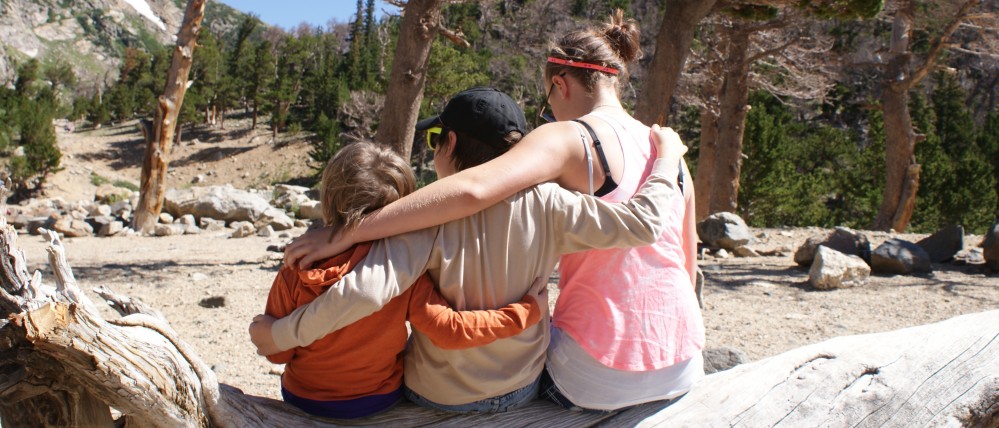Daryl had his wisdom teeth removed today. When we got him loaded back into the car, he looked drunk and groaned and moaned while looking at himself via his Snapchat camera.
One long groan eventually morphed into “I can’t feel my face,” repeated at an increasing level of anxiety and concern, interrupted only by the hiccups. We decided to stop by the pharmacy to drop off his prescriptions, my husband walking in while I got out to wipe the blood off his mouth that had him so concerned.
“I could die!” he insisted, pointing to his mouth. “I’m bleeding!”
I assured him that he wasn’t going to die, wiping his lips gently as I said, “You just had surgery. Of course you are going to bleed a little bit.”
“Wait. When?” His voice was high-pitched, in shock.
“Just now,” I responded.
“No,” he said, shaking his head and squinting his eyes. He mumbled something indiscernible about his time at the surgeon’s office, so I explained that he had had his wisdom teeth removed.
“Why? Do I still have teeth? Do I still have teeth?”
“Yes, you still have teeth. You just don’t have wisdom teeth. Those are the ones in the back.”
He looked really confused but eventually pointed to the side of his face and said, “But that’s how I chew my food. With the ones in the back.” The pointing became more insistent. We went on talking about his molars and how he doesn’t need the wisdom teeth for a few minutes.
“It’s a hard job!” he declared, referring to the oral surgeon. “Ahh! Did they hurt my nerve?” he asked, tapping his jaw. More nonsensical whining before: “What time is it? {looking down at his phone} It’s been an hour?!” His head bobbed and he kept on hiccupping as his dad returned to the car.
We pulled out of the pharmacy parking lot and he kept staring at his face on Snapchat before becoming alarmed. “Wait. Where are we going now?!”
“We’re going home sweetheart.”
“Oh. You say I’m not going to die?”
“No. You aren’t going to die.”
He zoomed the camera in to show his bloody teeth. “I look like a vampire. {unintelligible words} Wah? I’m bleeding. I’ve got to send this to Jared. He said I should video it.” (This while unaware that I was, indeed, videoing him.)
“My tongue! Where’s my tongue? Did they take it out?!”
“No, they didn’t take it out. It’s still there,” my husband responded patiently. Daryl stared at him like he didn’t believe him. “You’ll be able to feel it. Don’t worry. When the anesthesia wears off. No, don’t put your finger in your mouth. It’s ok.”
“No,” he said, shaking his head. “It’s not there. It’s not there!” As we tried to assure him that it was, he kept insisting that no, it was not. “They took my tongue out! I’m not even going to be able to talk. Why did they take it out? I’m going to have to have a robot talk for me! I can’t talk anymore! It’s not there!”
He reached to his face, ignoring our assurances that it would be ok, and as he cupped his chin, he exclaimed, “OH! Oh no! My whole mouth is gone!” His dad told him it was just numb. And he dozed off for a second, letting his head bob down before snapping back up.
Turning to his dad, he asked, “Did they take my teeth out?” As his dad explained yet again, he poked his finger toward his teeth. “Don’t put your finger in your mouth,” dad warned. Daryl splayed his fingers out with a reassuring wave, like “Ok, ok… I’m good” before lowering them slowly to his lap.
“What’s wrong with wisdom teeth?” he asked after a long pause. “What did they ever do to anybody?”
“They take up too much room,” I said. To which he responded, “Then why do we even have them? But I don’t have them anymore.”
“No, you don’t” we said.
“Will they grow back?” A variation of this question would be asked another dozen times over the course of the day. Along with, oddly enough, a request to have them removed as if he still had them. He would also authoritatively tell his sister that “Mom says they won’t grow back.”
As he pondered the sins of wisdom teeth and their permanent removal from his body, his head drooped toward his right arm, where he noticed a purple wrap holding the cotton gauze in place from where they had administered the anesthesia.
“Whoa!” he exclaimed in renewed alarm. “What’s this? Did I have ELBOW surgery?!” (Keep in mind that his mouth is full of gauze and he’s stoned so this, like everything else, was mumbled and sounded like “el…bow…sur…fer…ee.” He stared at his dad’s explanation, obviously not comprehending, so I assured him that he did not have elbow surgery.
We drove along in silence for a little while until my husband commented that Daryl’s hiccups had gone away.
“No. I don’t hiccup because I don’t drink alcohol,” Daryl said sagely. “You know who does? I could be a pirate. They drink alcohol.”
“You have to be a pirate to drink alcohol?” my husband asked.
“No. But they drink a lot of it,” Daryl said. He then starting waving his right hand in front of him that looked at first like a drunken conductor, but eventually evolved into shooting a gun as he softly made little pow-pow noises. Then he raised his left hand in the obvious pantomime of lifting a jug of rum to his drunken pirate mouth. “There’s shooting and then there’s some rum,” he said. He held the invisible rum above his mouth for a long time before announcing, “And then you’re out! Like a light.”
After a brief pause, he pointed out the windshield and pondered, “What if pirates had cars? Then they could just be a pirate on the highway.”
“Oh! I should check Snapchat,” he said as he picked up his phone, squealing in delight when he saw a message from his best friend. “That’s a laughing emoji.” He took a picture of himself while emitting a slightly maniacal giggle and attempting to smile.
He then fumbled with the settings before finding a laughing emoji, saying, “Watch this.” He enlarged the emoji to be a sticker on his photo. “Boom!” as he was successful in his attempt. “And now… I respond…and send… Boom!” he waved his arms out to his side, gleeful at his successful use of Snapchat.
A little later, he announced, “My feef hurt!”
“Your feet hurt?”
“Uh-uh!”
“Your TEETH hurt?”
“Yah!” As his dad explained (again), he muttered about how his teeth hurt and he just didn’t get it. “Is this what Codeine feels like?” he asked, tapping his lip.
“Is that what Codeine feels like? Um, no.”
“What is it? Eth-a-nol? Alc-o-hol?” Those last two words were given in a sing-songy voice.
“No, it’s anesthes-“
“OH! It’s a cop! Slow down.”
“I don’t need to slow down and, yes, I’ve seen the cop for about a mile now.”
As we drove by the cop, Daryl looked out the window and waved his hand. “We’re good, officer. It’s OK.”
He went on to make weird noises and bob his head before asking how long the surgery took. When told an hour, he exclaimed, “An hour?! For a tooth?”
“So about 15 minutes per tooth.”
“What do you mean ‘per tooth’?” he bounced his head a few times. “I’ve only got one tooth!” And then after a pause, “I have four?” All of this was delivered in a high-pitched, incredulous voice that modulated up and down on every word.
“You had four.”
“What?! How many do I have now?” He looked very concerned.
“You don’t have any wisdom teeth anymore.”
“Well, what? Why, where, is my any more wisdom?… I get my wisdom from my wisdom teeth.”
“Well, you still have the wisdom. You just don’t have the teeth.”
“Well, what if I can’t get any more?”
Eventually the weird noises turned into a bit of a rhythm and he started slapping his hands on his knees and bobbing his head as if listening to music.
“I’m gonna start a A ca-PEL-la band! I might!” Later, when I remarked on the long undulating vocalizations he was making as he waited to be led to bed, that he was getting a good start on his a Capella band, he doubled down.
“I could be the singer!” He put out his index finger. “And the drummer!” His middle finger. “And…the guitar!” Three fingers closed into his hand as his dad helped him to lay down.
He also declared he felt like a ferret. He wavered on the sidewalk and exclaimed he was ice skating. He walked toward the window of the house instead of the door. He reenacted how quickly the anesthesia took effect. He acted like the thermostat on the wall in the hallway tried to attack him. He insisted the gauze was in his mouth when it wasn’t. He declared that swallowing pills was the hardest thing he’d ever done. He grabbed his hat and asked if they had given it back to him.
And to think when I first saw him in the room, sitting quietly, I had worried that I had taken off work for nothing. There would be no drug-induced hysterical talk. That he’d be his usual quiet self and share nothing. Fortunately, he did not disappoint.

